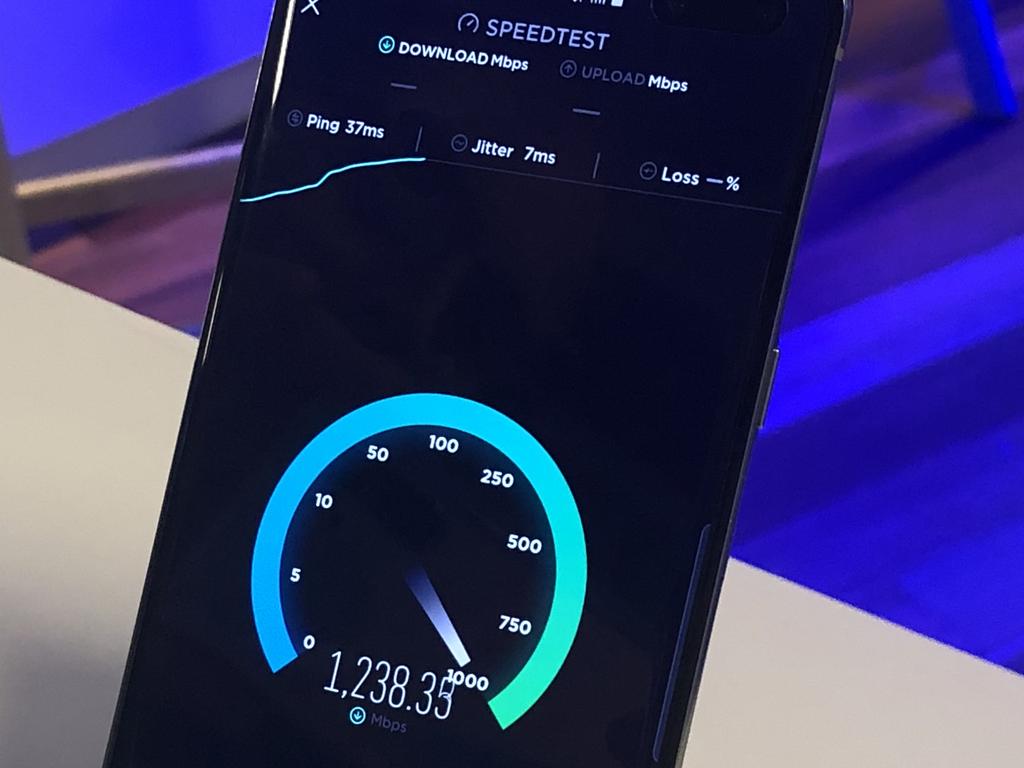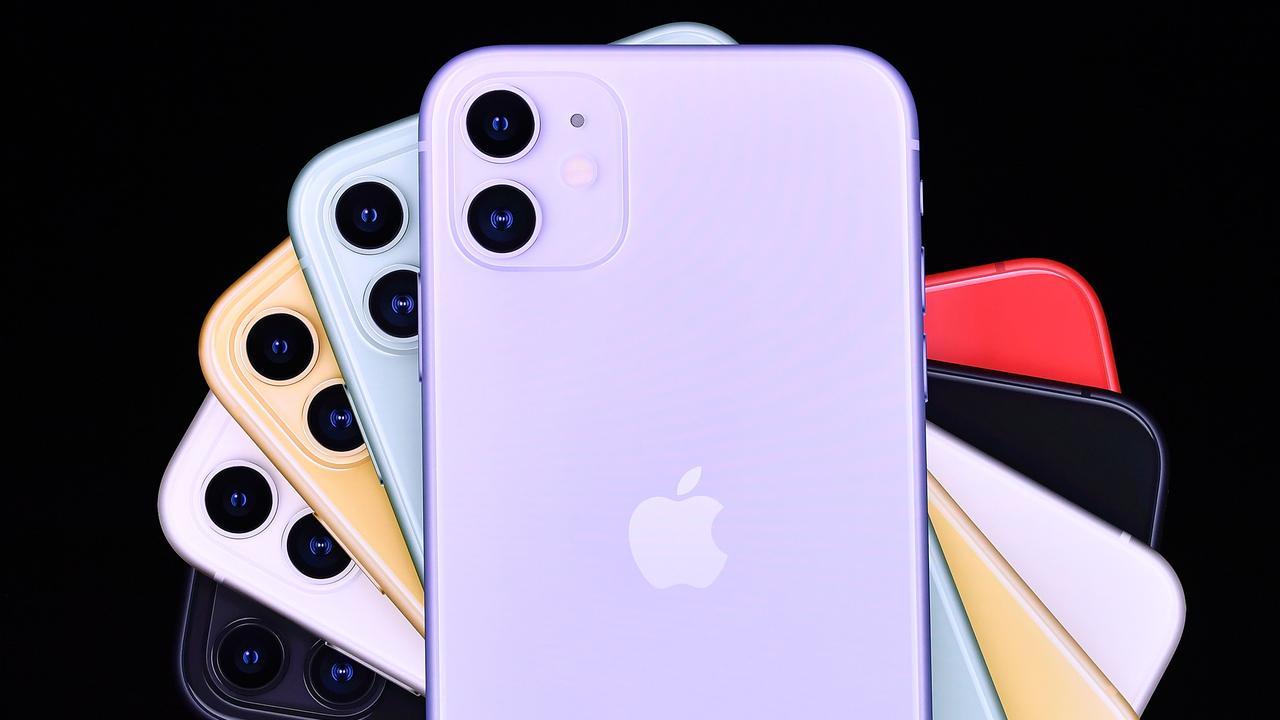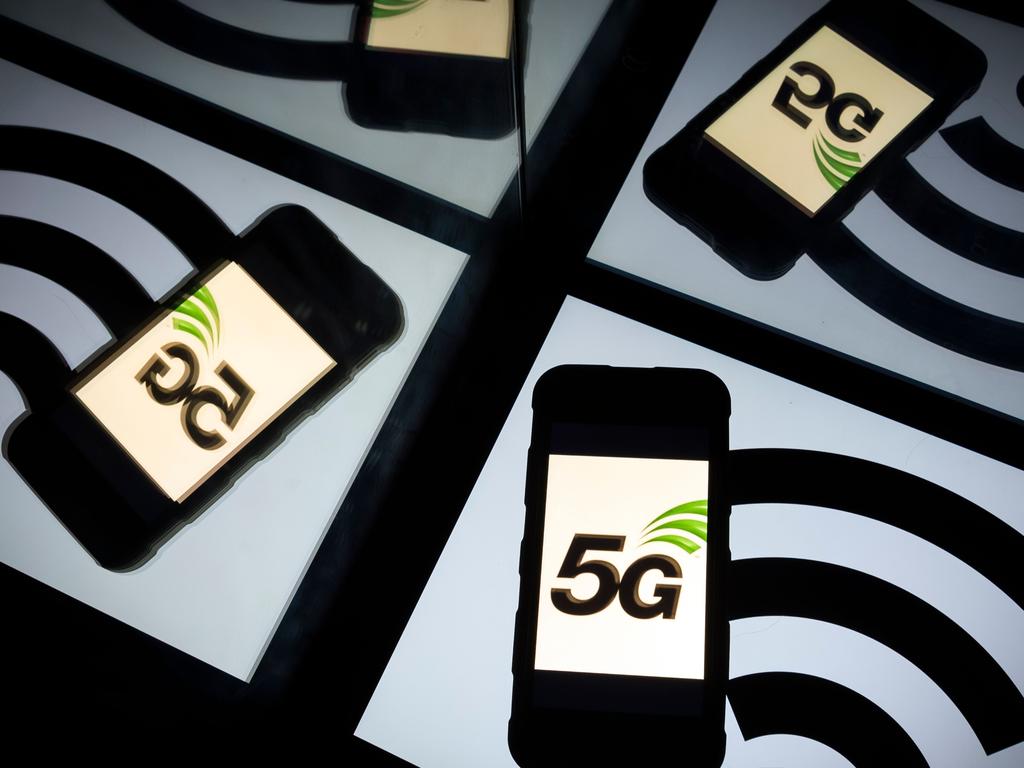Apple iPhone expected to get 5G at Hi, Speed event after Qualcomm, Intel deals
It’s expected to be the headline feature of Apple’s upcoming event, but there are reasons it’s taken the tech company so long to introduce.
Apple is hours away from revealing what everyone expects will be the latest iPhones, predicted to include features the company has never put in any of its devices before.
The “Hi, Speed” event will be streamed online from 4am AEDT on Wednesday morning. If you don’t want to wait up we’ll have all the most important details for you when you wake up.
Apple sometimes gives not-so-cryptic clues in the names of its events (last month’s iPad Air and Watch event was called “Time Flies”) and Wednesday morning’s title likely refers to the expected inclusion of new 5G mobile technology in at least some (if not necessarily all) of the new phones expected to be announced on Wednesday morning.
Rival phonemakers like Samsung and Huawei have had 5G technology in their phones for over a year – Samsung’s S10 5G was the first available in Australia, launching on Telstra’s network in May last year – but Apple has never released a device featuring the next-generation mobile technology, which is significantly faster than 4G and also provides lower latency.
RELATED: Your old iPhone could be worth thousands

RELATED: Apple passes historic $2 trillion milestone
There are a couple theories about why it has taken so long.
Given 5G is not fully rolled out, it’s possible Apple simply didn’t think it mattered in 2019, and that’s why it surprised some observers by leaving the technology out of last year’s iPhone 11 and iPhone 11 Pro.
Apple was also late to the table with the last generation 4G technology, first introduced in 2012’s iPhone 5, more than two years after the first 4G phone (made by HTC, if you can remember its start of the decade heyday) went on sale in 2010.
A more compelling theory is that Apple simply didn’t have the capability to introduce 5G last year.

RELATED: China’s global dominance is ‘done’
RELATED: Apple’s ‘terrifying’ move over logo
The company relied on Intel to supply its modems after its relationship with 5G pioneer Qualcomm soured to the point that lawyers became involved, but Intel wasn’t making progress at the same speed. A similar lack of progress is thought to be behind Apple’s decision to stop using Intel’s chips in its Mac computers.
Apple and Qualcomm eventually settled their differences, and lawsuits, in April last year and a Qualcomm chip is expected to power 5G in the iPhone for this year at least.
Like it’s doing with computer processors, and previously did with the A-series chips in its iPhones and iPads, Apple looks to be working on making its own 5G modems so it can stop using Qualcomm’s.
In July last year the company announced it would pay $US1 billion ($A1.39 billion) to acquire the majority of Intel’s modem division and, more importantly, 17,000 of its patents and 2200 of its employees.

Apple is expected to unveil several models of iPhone at the event, including potentially a smaller device and, in contrast, the biggest iPhone its ever made.
At least one of those devices might be restricted to 4G in order to push the price down or compel Apple customers who want 5G to buy a more expensive one.
It’s also been predicted that we might see a new HomePod Mini to help Apple try and capture more of the smart speaker market dominated by Google and Amazon, and the long-rumoured AirPods Studio could also make an appearance.
The last time the Apple TV received an update was in 2017 and since then the company has introduced the Arcade gaming subscription and TV+ streaming video on demand service that both run on the digital media player, so it’s possible we’ll see an announcement about that too.
Google recently announced an update to the Chromecast streaming stick to feature Google TV as well, making it an even stronger competitor to Apple TV.



